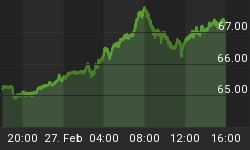The electric bus revolution is about to take off.
While the prospect of major advances in electric buses receive a small fraction of the attention that electric vehicles receive, the potential for a major transformation is arguably much closer. As with EVs, electric buses promise lower life-cycle costs when compared to their gasoline and diesel counterparts, but upfront costs remain painfully high.
However, Proterra, an electric bus manufacturer, is rolling out leasing plans that could eliminate this barrier. Proterra and Mitsui & Co. are teaming up to lease the batteries in electric buses so that the upfront costs of an electric bus reaches parity with a traditional diesel bus. In other words, no upfront cost for the battery, just monthly lease payments over the lifespan of the vehicle. The monthly payments would be offset by the fuel savings.
It is the same approach that solar developers began using years ago: no upfront cost, just lease payments over time.
A 2018 analysis from Bloomberg New Energy Finance (BNEF) predicted that while EVs would capture nearly a third of the total auto market by the 2030 – a bold prediction, to be sure – electric buses would gain acceptance must faster. By 2030, electric buses overwhelm the bus market, taking 84 percent of total sales. In one scenario, BNEF sees electric buses reaching upfront cost parity with conventional buses on an unsubsidized basis by the mid-2020s. Related: China's Economic Growth Exceeds Analyst Expectations
The CEO of Proterra told Axios in a March interview that he doesn’t actually see electric buses ever reaching cost parity with diesel buses, but not for the reasons one might think. “I don’t think we’ll ever get all the way there, because I actually think that once we’re within a 2-year fuel payback, the diesel bus market goes extinct,” Proterra’s chief executive Ryan Popple said.
Still, the steeper upfront cost today is one of the largest hurdles. Mitsui has agreed to provide a $200 million credit facility to help launch Proterra’s battery leasing program. A new diesel bus can cost about $500,000 while also incurring around $1 million in maintenance and fuel costs over its lifetime, according to Proterra’s Ryan Popple and Greentech Media. In contrast, one of Proterra’s electric buses costs $750,000 upfront, but will have maintenance costs that are 20 percent lower than a diesel bus.
By adding in a lease for the battery, the electric bus can make sense right away, rather than having a long payback period. “On a percent basis, it takes the upfront premium for an electric bus from 50 percent to zero,” Popple told Greentech Media. “You eliminate $250,000 of capital acquisition premium that you traditionally paid to invest in a higher-efficiency electric bus.”
Electric buses may have an easier time gaining traction than passenger EVs for several reasons. They drive longer distances, which means the fuel savings add up over a shorter period of time. They cover predictable routes, making it easier to locate and build recharging infrastructure. Perhaps most importantly, the customers tend to be municipalities or corporations, rather than individuals. These entities can take a long-term view, and make practical decisions around life-cycle costs.
Related: Gold Prices Fall On Record Global Production Estimates
China accounts for the vast majority of electric buses on the roads worldwide. The U.S. market is still small, although growing quickly. As of 2017, fewer than 500 electric buses were sold in the U.S. But Proterra told Greentech Media that demand is strong and it already has 45 new orders this year, including from repeat customers. Portland, Oregon, just deployed its first electric bus this week, a bus manufactured by Winnipeg-based New Flyer. Portland has plan to switch its nearly 700-bus fleet from diesel to electric by 2040. More and more cities are opting to do the same.
The impact on the oil market could be more profound from buses than from EVs, at least in the short- and medium-term. According to BNEF, electric buses (again, mostly in China) will displace about 270,000 barrels of diesel demand per day in 2019, while EVs will only displace a little more than 80,000 bpd of gasoline and diesel demand.
Elon Musk and Tesla tend to soak up an inordinate share of media attention when it comes to electrifying the transportation sector, but e-buses are having a larger impact.
By Nick Cunningham of Oilprice.com
















